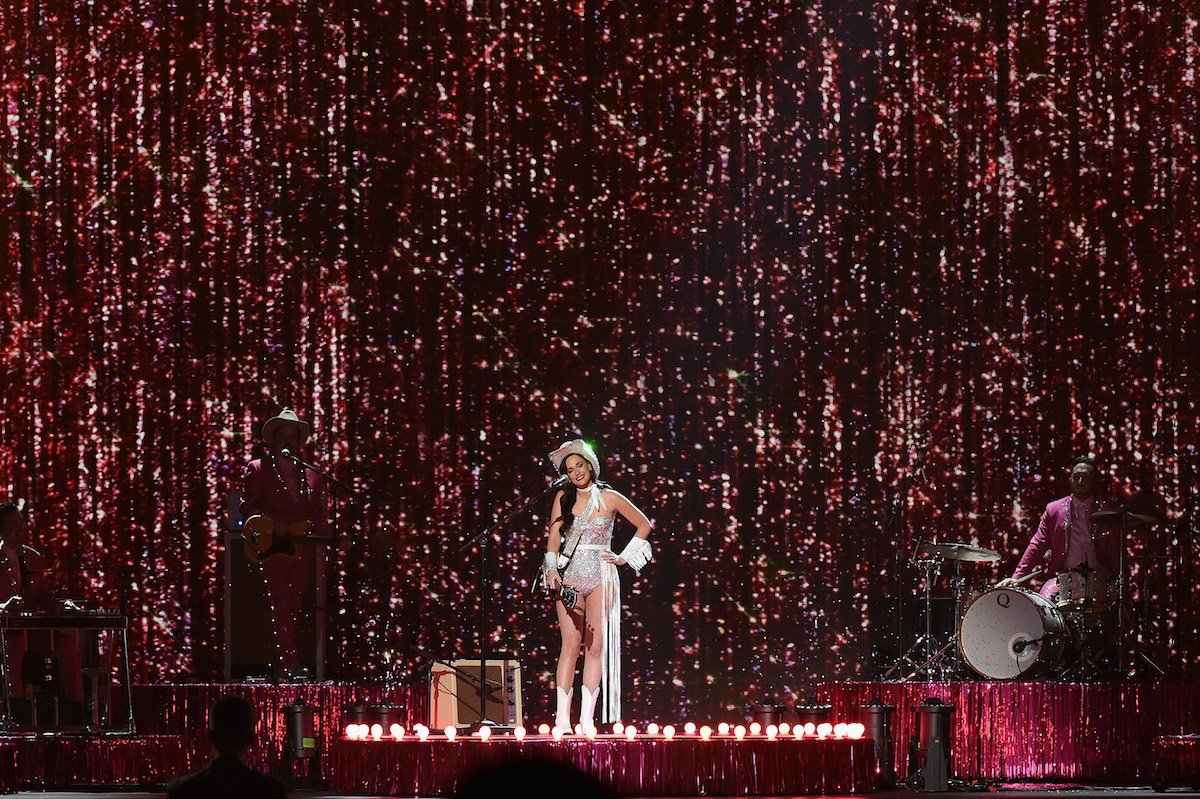Kacey Musgraves has made a career of re-examining the bromides that undergird American life, laying a foundation for her songs using imagery and phrases so cliché they couldn’t possibly contain any more revelations. Of course, such is the way those songs derive their power: Musgraves not only believes in the power of parables, but in her ability to reposition them so they reflect something the listener may not have seen before. “So come on hitch your wagon, to the living room I’m dragging / If I can’t bring you to my house, I’ll bring my house to you,” she sings on “My House,” a song from her 2013 debut album that spins a universal story of forever love out of an old saying and some well-worn scenes of mobile living. She often adds her own cross-stitches to the canon (“Nobody needs a thousand dollar suit just to take out the trash” goes the humble pie ballad “High Time”), but Musgraves seems most interested in finding new meaning in truisms we’ve been batting around for ages.
Rarely has she turned a better phrase than on “Space Cowboy,” one of two new singles from her forthcoming third album Golden Hour. The concept has been around for something like 50 years, as a specific term used by artists from the Steve Miller Band to Jamiroquai, and as inspiration for characters sketched out by people like David Bowie and Elton John. Musgraves cleaves the phrase open, dropping a comma between the two words as a means of writing a deeply affecting song about finally letting go of a dying relationship. “You can have your space, cowboy / I ain’t gonna fence you in,” she sings, a bait-and-switch that yanks you off the astral plane and back into the down-home real world where her songs exist.
There is a certain delicacy to much of Musgraves’ writing. She often espouses old world values (“Mind your own biscuits and life will be gravy” went the first single from her second album, Pageant Material), but she grounds her songs in these sorts of sayings as a way of injecting a progressive individuality into country music without uprooting herself from the genre altogether (“Follow Your Arrow” et al.). “Space Cowboy,” though, has an emotional complexity that is new to her catalog. The song is a lament (she leads into the chorus by remarking, “Boots weren’t made for sitting by the door / Since you don’t want to stay anymore…”) that feels vulnerable but also doesn’t quaver. It views separation through a lens of hardened realism (“When a horse wants to run, there ain’t no sense in closing the gate”) that can only come with the acceptance that one person’s freedom is the other person’s as well. As such, “Space Cowboy” conveys a quiet but confident strength. It also drips with condescension, an emotion Musgraves must be careful to avoid when she’s picking at countryisms; but here, “cowboy,” applied to a runaway ex, rings out as withering mockery of a man who thinks he’s something he’s not.
Musgraves has also normally paired her remixing of the American lexicon with the sort of banjo and pedal steel arrangements that further remind the listener of where exactly she comes from. But “Space Cowboy” is appropriately cavernous, situating Musgraves inside a wide-open arrangement that allows her voice to expand and fill the air; the instruments seem to merely shimmer around her, with only a pedal steel cutting through to punctuate her stanzas with a long sigh. “Ain’t gotta be alone to feel lonely,” Musgraves once sang, but never has she made isolation sound better.





